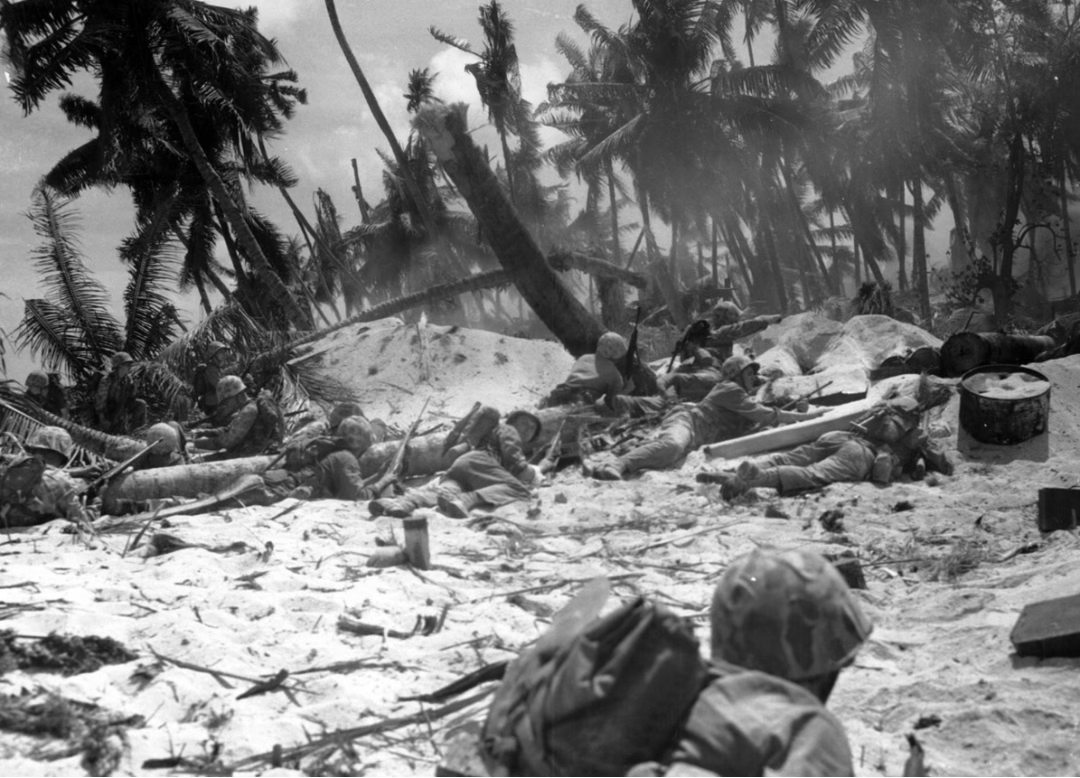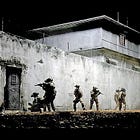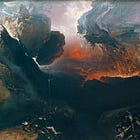Why Fiction Still Matters: Once an Eagle by Anton Myrer
And why losing in the age of short form content is actually winning

This book struck me so deeply that trying to condense it into an essay felt like trying to stuff an elephant in a teacup, or maybe stabbing a puppy, depending on which intellectual or emotional difficulty was eating away at my mind.
So I delimited it to the one theme on top of my mind the entire time I was reading it.
In the war for our attention, more and more people are choosing short form content over long form. They choose social media posts, infinite scrolls, and tiny little blasts of dopamine from instantly liking or hating something, and avoid essays and books that challenge and question without quick answers.
My focus in this piece is fiction: why does fiction still matter in the age of short-form content?
In this piece, I treat Once an Eagle by Anton Myrer as the embodiment of fiction and why it matters.
I finished it weeks ago. And yet my memory randomly slips into the mood I was in while reading it for the first time: awe that I had to pause to admire the prose; awe that my heart rate increased and I felt a gnawing sense of No No No as the plot wound its way to the deepest darkest caverns of the human condition. I still drift into a thousand yard stare when the lessons from that novel blossom in my mind. It stuns me that this is possible.
The novel focuses on two characters: Courtney Massengale and Sam Damon.
Massengale starts his career as an officer in the commanders staff; i.e. not in the field, as far from the mud and blood and cordite of the trenches as possible. He saw no action during the entirety of WWI. And yet his superiors view him as prudent, mature, and even tactically brilliant, which he is. Over the years he works his way into positions of power and ends up in command of soldiers island hopping across the Pacific in WWII.
But for Massengale, war is an abstraction. The men in the field are as inanimate and expendable as pawns on a chessboard. Foxholes filled with battered sacks of skin and blood and spit and metal are merely words, not realities. Men screaming for their mothers are not heard in the field but as stories heard after the fact in somber tones in white-walled rooms, opportunities to don a solemn expression and shake the head and give voice to noble sounding sentiments about sacrifice. War is a mere stepping stone to greatness. His greatness—his rank, his metals, his prestige, and his power.
Damon, on the other hand, starts his career in the burning vineyards of WWI where he wins the Medal of Honor. His hatred of war is as striking as his ability to excel in it. He is a natural leader, and he is promoted from a knuckle-dragging enlisted man to an officer.
But when the war ends, his superiors no longer have patience for unpolished and old-school fools like Damon, who says things like, “If this war is going to be won… the old-fuck ups and trouble-makers are going to win it.” Damon is viewed by all but those closest to him as war hungry; as if his sole goal is to risk his men’s lives to win the fight. And yet he internalizes the pain of every lost leg and every bloodied corpse under his command because he gives a damn. He hates war because he knows its effects, but he wages it with a biblical aggression because he knows fewer lives will be lost in the end.
To the depths of his soul, Damon cares for his men. He literally bleeds for them. And this is his kryptonite, the fatal flaw which is inevitably exploited—by Massengale.
During a battle in the Pacific, Massengale orders Damon to execute a maneuver which Damon knows will needlessly kill most if not all of his soldiers. Massengale threatens to replace Damon with an incompetent officer who Damon knows will guarantee all of his men will die. So what does our hero do? He follows the order. Damon not only manages to win the needless bloodbath that follows, but saves the lives of a few of his soldiers as well.
And the central irony is this: when the abominable cost of the battle is weighed, Massengale blames Damon—life-loving, war-hating, man-in-the-arena Damon. This was Damon’s fate in the novel again and again, until the very end.
Massengale does not get his comeuppance. There is no romantic justice that I actually believed was going to redeem Damon. It was brutal—and real. Myrer lived it and he wanted us to live it for a reason.
The novel asks in some of the most epic prose I have ever seen, what is it to be decent in a world where the indecent rise to the top?
So let us look at why fiction still matters.
Unlike bite-sized opinions and bullet-pointed summaries, we are not given the answer by an influencer or an LLM—we are immersed in the struggle; we feel it; it sits within us for days and years and decades and gnaws away at our decisions and our character. I am still torn up inside over Sam Damon’s fate; about how the good will not always win.
In this work of fiction, we find ourselves asking “If the game is rigged, then what can we possibly do about it?” And herein lies the value: we must choose between curling into a ball under a blanket, killing our capacity to think with social media, or answering the question and taking a stand. And what of the future generations who are now in college, elementary school, or currently crawling around on the floor? They have the opportunity to hear the Damon-voice at war with the Massengale-voice inside their own hearts and skulls—and they can win the war ahead of time.
Fiction is written by humans, those flawed and featherless bipeds who fuck things up again and again, and can therefore learn wisdom. Myrer could delve so deep in the minds of men in hell because he himself saw the pulpy red deaths of war with his own eyes. And he did it so poetically I could only sit and hold my battered paperback in my hands as though it were some unthinkable collaboration between Beelzebub and God. Such a thing takes time—slow time, which short form content kills.
It is also true that Damon and Massengale transcend the literal and enter the metaphorical. Damon is a paperback in your hands, while Massengale is a social media post, a TikTok-sized video, an answer spit out by the apparently godlike void of an LLM. Damon wants you to take a walk in contemplation as if shell-shocked, while Massengale wants you to get into arguments in comment threads or stare at the screen in a stupor.
I can hear the present day Massengales laughing as more and more people drift away from long form content. They laugh as novels are given up for dopamine. Short form content—this is the medium of a Massengale: abstracted, offset, no skin in the game, fast and fluid and disorienting. This makes sense. The less a population is able to think deeply, empathetically, and independently, the easier it is for the Massengales to rise to the top.
If this is how to get ahead in life, then I imagine many will gladly stay behind—in the trenches. They will double down on long-form content: essays and short stories and novels with gut-wrenching themes and ideas that challenge the mind.
It may be that those who do so will lose, but at least they will have the Damon’s for company. It is a good fight, and a better life—maybe even one worthy of a novel.
To help more readers find my work, please consider adding a like, restacking, and sharing this essay.






It's not the writing that is short form; the thinking is short form. People don't ponder. They start with the conclusion, and then find dots to connect that will prove they're right. And to hell with all those other dots..
Sam, they made the novel into a made for TV movie in 1976. Sam Elliot played Sam Damon and some other guy Massengale (did a great job of being sublimely evil!) It was must see TV! It lead to reading the book. It’s worth trying to find and view the movie, I think. It shaped me, my thinking about how I would lead my Marines when the day came and it did come. There were and you saw them as well Officers that were popinjays and always currying favor looking for the next rank. Two come to mind in the last 20 years, David Petraeus and Stanley McCrystal, perfect Massengales. I would also say in addition to reading good fiction that poetry isn’t a bad fix either. My favorite is TS Eliot’s “Four Quartets”My favorite of the four quartets is “Dry Salvages” I suspect if you read it you’ll see why I like it so much but the others are great and since starting to read them at age 15 the meanings and so forth have changed and grown with me, I learn something new even at age 69.5…ahhh yessss that’s what he meant!
Lastly your choice of photo of the epic Battle of Tarawa hits home. The Marines thought it a bad idea and it was, and further it gave rise to the use of underwater demolition teams, we needed recon of the beaches after the carnage on the low tide reefs. So Frogman, thus
came the SEAL’s and thank goodness for someone having the vision to create frogmen from tadpoles. We knuckle dragging 03’s know where our bread is buttered! Never cross a beach you know nothing about! Hmmm maybe a metaphor of life in that statement! Great post!